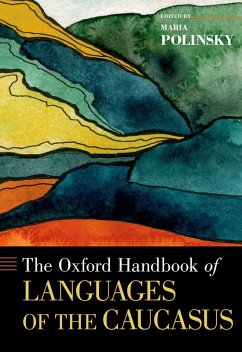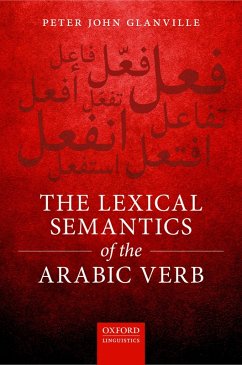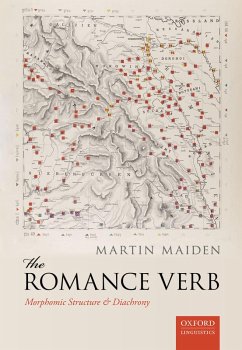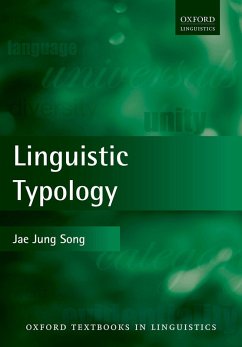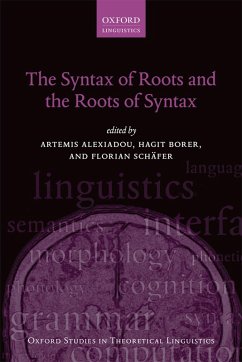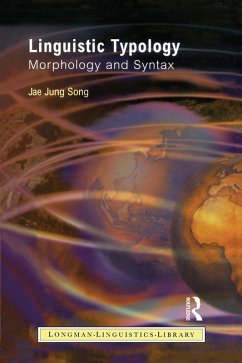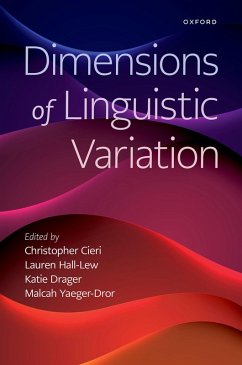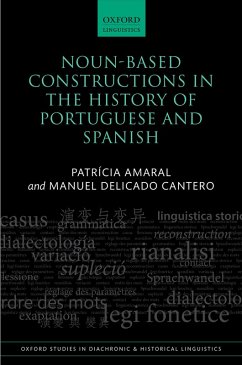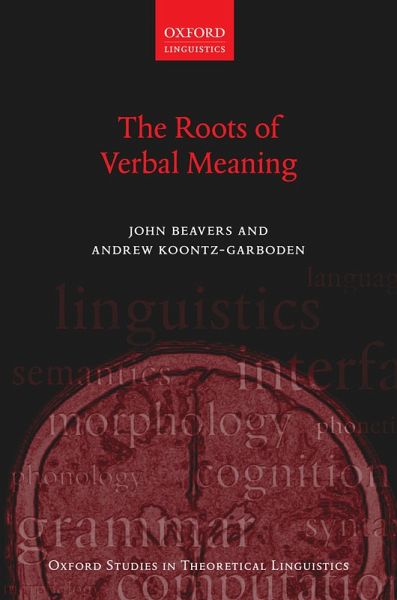
The Roots of Verbal Meaning (eBook, PDF)

PAYBACK Punkte
0 °P sammeln!
This is an open access title available under the terms of a CC BY-NC-ND 4.0 International licence. It is free to read at Oxford Scholarship Online and offered as a free PDF download from OUP and selected open access locations. This book explores possible and impossible word meanings, with a specific focus on the meanings of verbs. John Beavers and Andrew Koontz-Garboden adopt the now common view that verb meanings consist at least partly of an event structure, made up of two elements: an event template describing the verb's broad temporal and causal contours, which occurs across lots of verbs ...
This is an open access title available under the terms of a CC BY-NC-ND 4.0 International licence. It is free to read at Oxford Scholarship Online and offered as a free PDF download from OUP and selected open access locations. This book explores possible and impossible word meanings, with a specific focus on the meanings of verbs. John Beavers and Andrew Koontz-Garboden adopt the now common view that verb meanings consist at least partly of an event structure, made up of two elements: an event template describing the verb's broad temporal and causal contours, which occurs across lots of verbs and groups them into semantic and grammatical classes; and an idiosyncratic root describing specific, real world states and actions that distinguish between verbs with the same template. While much work has focused on templates, less work has addressed the truth-conditional contributions of roots, despite the importance of a theory of root meaning in fully defining the predictions made by event structural approaches. This book aims to address this gap by exploring two previously proposed constraints on root meaning: The Bifurcation Thesis of Roots, whereby roots never introduce the meanings introduced by templates, and Manner/Result Complementarity, which specifies that roots can describe either a manner or a result state but never both at the same time. Two extended case studies, on change-of-state verbs and ditransitive verbs of caused possession, show that neither hypothesis holds, and that ultimately there may be no constraints on what a root can mean. Nonetheless, the book argues that event structures still have predictive value: it presents a new theory of possible root meanings and their interaction with event templates that produces a new typology of possible verbs, in which systematic semantic and grammatical properties are determined not just by templates, but also by roots.
Dieser Download kann aus rechtlichen Gründen nur mit Rechnungsadresse in A, B, BG, CY, CZ, D, DK, EW, E, FIN, F, GR, HR, H, IRL, I, LT, L, LR, M, NL, PL, P, R, S, SLO, SK ausgeliefert werden.




